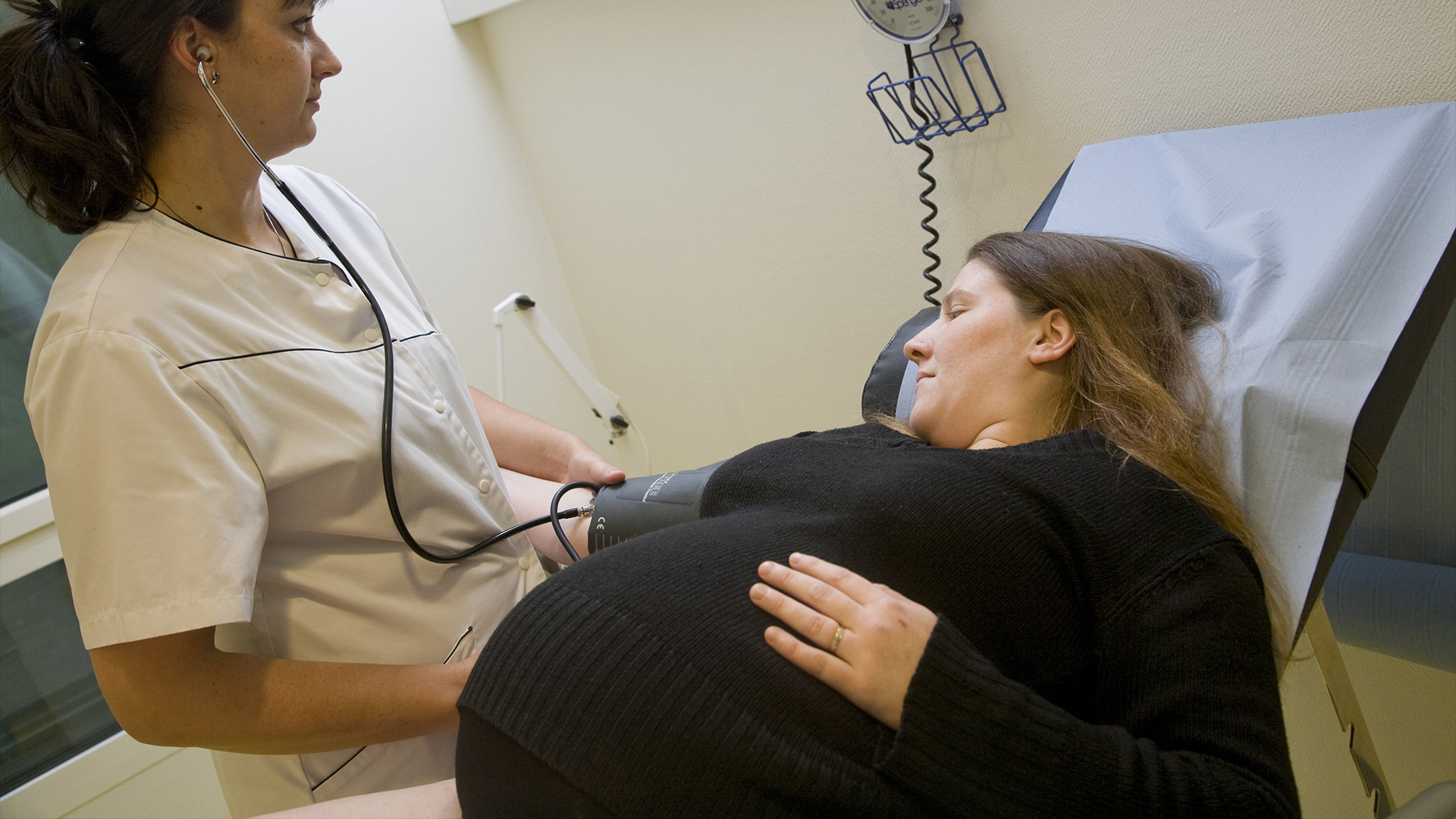
"Zombie cells" lurking in the placenta may underpin a type of heart failure that strikes in late pregnancy or shortly after birth, a new study finds.
These undead cells point to potential ways to treat the poorly understood condition, known as postpartum cardiomyopathy (PPCM), which weakens the heart so it can't pump blood as efficiently. Symptoms of this type of heart failure range from mild to deadly, and it affects an estimated 1 in 1,000 live births in the U.S. and closer to 1 in 100 live births in Nigeria.
The new study, published Wednesday (April 17) in the journal Science Translational Medicine, may also shed light on biological aging — a process that appears to speed up during pregnancy, at least by some measures.
"We do believe that there may be a link here," first study author Dr. Jason Roh, an assistant professor of medicine at Harvard Medical School and a cardiologist at Massachusetts General Hospital, told Live Science in an email.
Studies of biological aging in pregnancy have looked mostly at epigenetics — chemical tags found on top of DNA — but the new study looked at proteins made by cells in the placenta. There isn't yet direct evidence linking these two processes, but that could potentially be revealed in later research.
Related: 'Mini placentas' may reveal roots of pregnancy disorders like preeclampsia
Biological aging in the placenta
The exact cause of PPCM is a mystery, but the condition has been tied to preeclampsia, a condition involving persistent high blood pressure that emerges between midpregnancy and the postpartum period. It's well established that preeclampsia is a risk factor for this type of heart failure, but in recent years, emerging evidence has suggested that the two conditions may actually share underlying causes.
This overlap seems related to substances that increase in the blood during pregnancy.
The idea is that, in mothers with a genetic risk, these conditions are "unmasked by certain factors released into the blood during late pregnancy," said senior study author Dr. Anthony Rosenzweig, a professor of medicine at the University of Michigan and the director of the Stanley and Judith Frankel Institute for Heart and Brain Health. "These circulating factors are thought to have direct effects on the function of the mom's heart," Rosenzweig told Live Science in an email.
To identify what these factors might be, the team screened for more than 1,000 proteins in the blood of patients with PPCM or preeclampsia. They compared these patients to people with uncomplicated pregnancies; people with heart muscle problems unrelated to pregnancy; and people with gestational diabetes.
They found that, as shown in previous studies, people with PPCM or preeclampsia carried more proteins related to inflammation in their blood than the comparison groups did. But they also showed a distinct signature of biological aging, despite all of the study participants being in their 20s and 30s.
This signature has historically been tied to "senescence," a state that cells can enter following damage or stress. Senescent cells stop multiplying but start spewing molecules that alter the tissue around them, sparking inflammation, for example. The immune system then clears these cells away, but as the body ages, this cleanup becomes less efficient and the senescent cells accumulate. This buildup has been tied to age-related diseases such as cancer.
Because the placenta is a temporary organ that's not needed after pregnancy, it's known to show extensive signs of senescence toward the end of pregnancy. That part is normal. But the researchers speculated that maybe, in PPCM and preeclampsia, this aging process happens faster than usual.
"After picking up this signal in the blood, we knew we were on to something," Roh said. They found that 28 senescence-related proteins were boosted in the blood of people with the conditions, and the same proteins showed up in placental tissue from people with preeclampsia.
The most dramatically boosted protein was Activin-A, which has previously been tied to heart failure and cardiac complications of COVID-19 in older adults, Rosenzweig noted. To confirm the protein's relevance in this new context, the team looked at blood samples and medical records of two independent groups of women with preeclampsia or PPCM. In both, Activin-A levels were not only high but were also correlated with poor cardiac function and heart failure.
What's more, the team found that blocking Activin-A dramatically reduced the incidence of heart failure — at least in pregnant mice prone to PPCM. They tested two different methods of blocking the protein; one was tested in early pregnancy and one in late pregnancy.
"While these experiments [provide] exciting proof-of-concept validation for the role of these pathways," Rosenzweig said, "the safety and efficacy of this approach needs to be rigorously assessed in clinical studies." So while the mouse experiments hint at future treatments for people, much more work needs to be done.
"We still don't fully understand why placental senescence becomes so perturbed in these conditions," Roh said. "If we are to intervene on this process, it is absolutely critical that we first rigorously determine the best approaches to safely and effectively target it to optimize both the mom's and baby's health."
There's also a lingering question as to whether placental senescence could be partly responsible for the health effects of sped-up biological aging seen later in life, he added. In this particular study, though, the subjects weren't followed over time, so that's a question for future research.
Ever wonder why some people build muscle more easily than others or why freckles come out in the sun? Send us your questions about how the human body works to community@livescience.com with the subject line "Health Desk Q," and you may see your question answered on the website!






